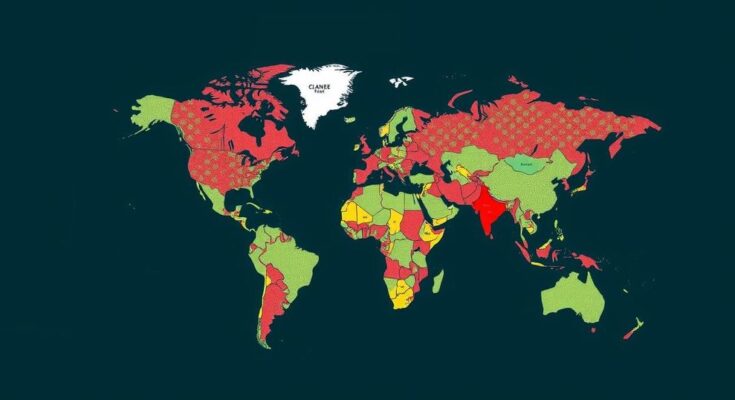Developing countries have criticized the recently approved climate deal, labeling the $300 billion annual commitment from wealthy nations as insufficient. Delegates from nations such as India and Sierra Leone expressed that the agreement does not meet their needs amidst increasing climate challenges. While some viewed it as a starting point, the overall sentiment reflects significant disappointment with the lack of substantial support from developed countries.
The recent climate deal approved by nearly 200 nations has been met with significant criticism from developing countries. They decried the commitment of $300 billion per year from wealthy nations as utterly inadequate in light of the escalating climate crisis. India’s representative, Chandni Raina, called the agreement an “optical illusion” that fails to tackle the severity of global climate challenges, while Sierra Leone’s climate minister labeled it a demonstration of rich countries’ indifference towards poorer nations. Other delegates voiced frustrations, underscoring the disparities in commitment by wealthy nations, including pledges to provide far larger sums. Despite some nations expressing disappointment, others viewed the agreement as a starting point for future negotiations, with hopes for more substantial outcomes in forthcoming discussions.
The backdrop of the climate deal revolves around the urgent need for financial commitments from developed countries to support developing nations facing severe climate impacts. These poorer countries have historically contributed less to climate change but suffer disproportionately from its effects. Climate negotiations often reveal stark divisions between wealthy nations, which are largely responsible for historical emissions, and those vulnerable to climate impacts that lack the financial resources to adapt. The $300 billion commitment was intended to provide necessary support, yet it has been widely criticized as inadequate given the scale of challenges posed by climate change.
In summary, the discontent expressed by developing nations regarding the $300 billion climate deal underscores a broader frustration with the perceived lack of commitment from wealthy countries to address climate change effectively. The agreement, while seen by some as a necessary starting point, failed to meet the demands for substantial financial assistance. As the climate crisis escalates, the ongoing disparity in commitments may hinder effective global cooperation in tackling these pressing challenges.
Original Source: www.al-monitor.com




